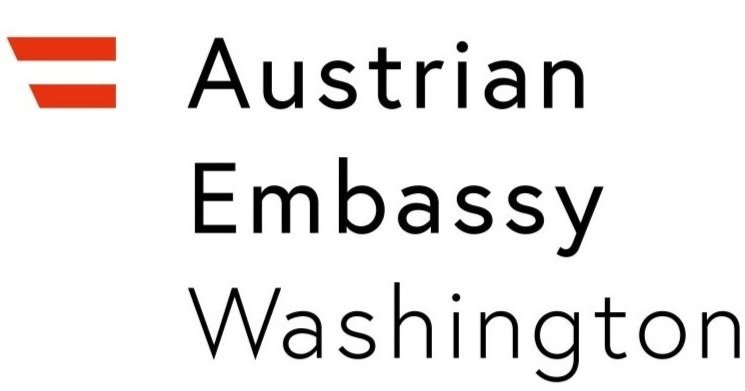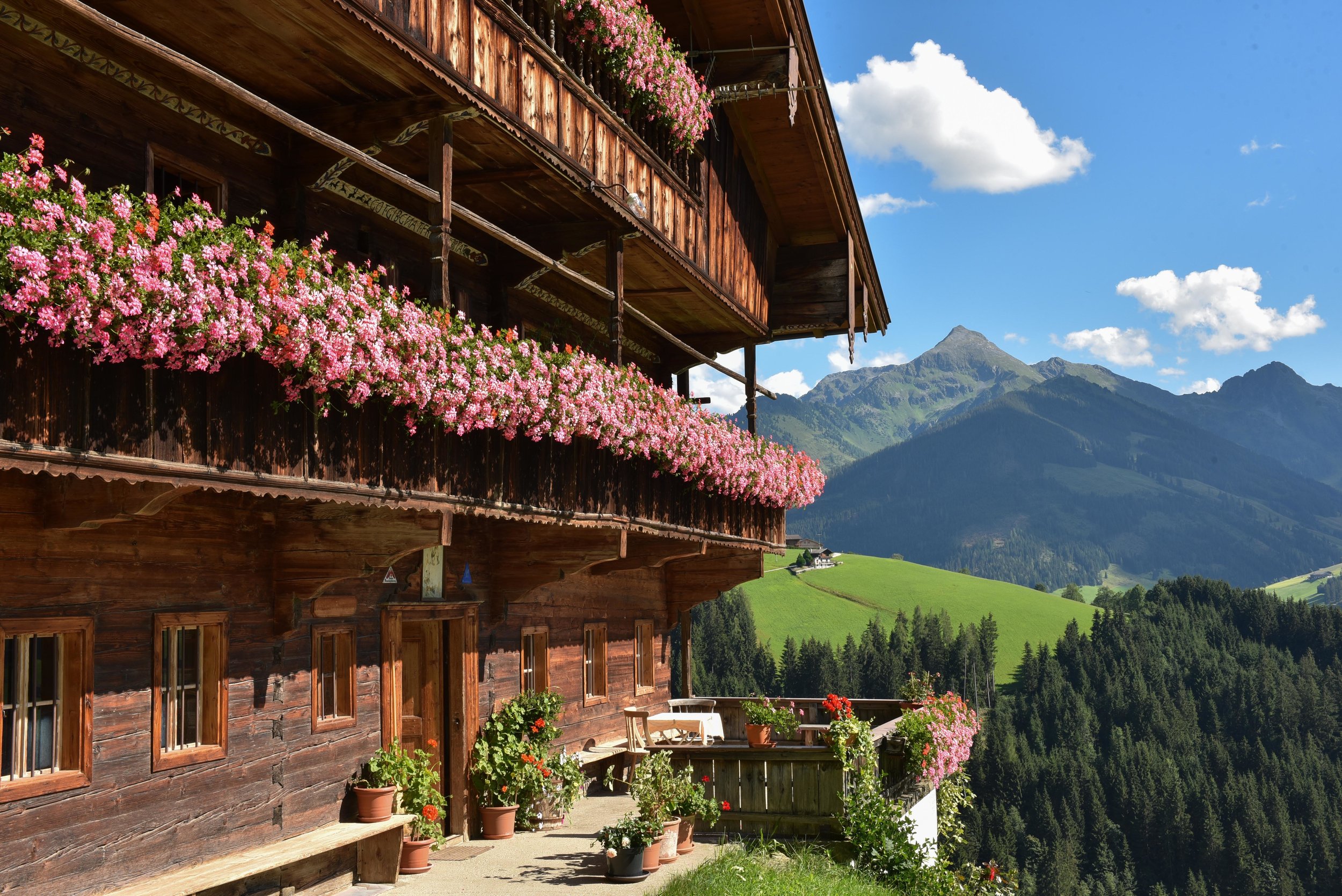Copyright: Alpbachtal Tourismus, Fotograf: Bernhard Berger
Moving to Austria
Which initial organisational steps are essential?
How do I search for a school for my children?
How can I get foreign education qualifications recognised in Austria?
Entering Austria
Austrian citizens may reside in Austria without restriction. In orderto enter Austria, however, they always require a valid travel document. Worldwide, a travel document is primarily considered to be a passport; but within the EU or the Schengen Area, Austrian citizens can also travel with a valid personal identity card. A driving license is not a travel document, nor is it a document proving the holder’s identity.
Issuing of a passport – Austrians abroad
Issuing of a personal identity card – Austrians abroad
Other rules apply for people who are not Austrian nationals – for instance, relatives of Austrians: EU/EEA citizens and Swiss nationals can reside in Austria for up to 3 months without a visa. They can also reside in Austria for longer if they meet certain requirements as they have a right to free movement in the EU.
EU/EEA citizens and Swiss nationals: Entry, residence and settlement
Nationals of other countries require a visa to enter Austria and this entitles them to a stay of up to six months in the country. In order to stay in Austria for longer than six months, all nationals of other countries require a residence permit.
Nationals of third countries: Entry and residence
Residence
Those moving to Austria and all children under the age of 18 living in the same household are obliged to register with the competent authority. Here you will find all further information regarding the registration of a primary or secondary place of residence.
Registration of primary place of residence, secondary place of residence
In Austria, there are not only apartments and houses to rent or buy on the free market but also state-subsidised (and thus cheaper) forms of housing. Here you will find comprehensive basic information relating to the topic of residence.
Looking for work
Those looking for a job in Austria will be supported by the Austrian Public Employment Service (AMS). The AMS offers the opportunity to find many available jobs in Austria via an online search engine. The website of the AMS can be found here:
When looking for a job in Austria, there are many important topics, such as the use of qualifications acquired abroad, the best approach when looking for a job, or on which job board or at which job fair you can find the jobs that you are looking for.
Checklists for working in Austria
Working
When you start a job in Austria, the basis for this is always the contract of employment. This contract stipulates the boundary conditions for the employment, such as tasks, rights and obligations, working hours and the agreed salary.
Austrian citizens can work in Austria without restriction. The same also applies for EU/EEA citizens. Please note, however, that nationals of third countries (e.g. also relatives of Austrians) require a work and residence permit in order to be able to work in Austria.
Nationals of non-EU/EEA countries
Persons who already have a fixed place of work in Austria have to report to their employer after entering Austria. Here you will find a useful checklist for the first steps in your new job.
Checklists working in Austria for nationals of third countries
German-language courses in Austria
In Austria, there is a broad range of institutions offering German courses. You can find lots of information on certified German courses on the online platform “Sprachportal” (“Language portal”) of the Austrian Integration Fund (ÖIF). There you will also find free learning materials and online language courses as well as legal information.
Sprachportal - Austrian Integration Fund (ÖIF) language portal
Schools
All children residing in Austria are subject to compulsory schooling. It commences in the year when a child reaches the age of six by 31 August and lasts for nine school years. General information on the topic of school can be found here:
The education system in Austria, from pre-school establishments to universities, is diverse and of a high quality. Many educational institutions report to the Austrian Federal Ministry of Education, Science and Research – you will find an overview of the Austrian education system on its website:
Children whose native tongue is not German, and who are unable to follow lessons in German, commence instruction at school initially as atypical pupils in, for instance, German remedial classes.
Pupils with a first language other than German
When you have found a suitable school for your children, please contact the school headmaster or headmistress. Frequently, an appointment will then be made for you and your child to get to know the school. Here you will find further information to assist you in finding a suitable school for your child:
Social insurance
The Austrian social insurance system is based on the principle of solidarity and comprises health insurance, accident insurance, pension insurance and unemployment insurance. Health insurance is compulsory for all those who work in Austria and is handled by the employer. In addition, there is the possibility that relatives, such as children, spouses or life partners, are also insured under the same health insurance. Here you will find further information on the Austrian social insurance system:
General information on social insurance
Taxes and financial matters
In Austria, there is a strong social security network that prevents acute poverty where possible and strengthens the social cohesion. The social system is predominantly financed through tax contributions from employees and employers. Here you will find further information on taxes:
For almost all transactions in everyday life an Austrian checking account will be required, particularly for the receipt of your salary or the payment of invoices. Here you will find information on the topic of bank transactions in Austria:
Documents
Austrians do not have to carry a passport or ID card with them when they are in Austria. Please note, however, that persons who are not Austrian nationals must always have proof of their identity (for instance, a residence permit) with them when they are in Austria. Here you will find information on the most important documents:
Checklist papers and documents in Austria
Motor vehicles
If you have your primary place of residence in Austria, you may only use a vehicle with a foreign license plate for up to one month. After no more than one month, you will have to reregister the vehicle with an Austrian license plate.
Use of a vehicle with a foreign license plate
You can find a lot more information on the topic of cars such as registration, checks, taxes and levies, import or parking here:
In Austria, many car owners are members of an automobile association that offers services such as breakdown assistance or motor vehicle-related insurances. The two largest automobile associations are:
Pets
If you have pets, you need to observe certain rules in Austria. For example, all dogs have to be chipped and registered. Some rules also only apply in certain municipalities, for instance the requirement for dogs to wear a muzzle or be kept on a lead. When buying a dog as a new pet, a so-called certificate of competence has to be presented. Here you can find out more about keeping pets in Austria:
Education consulting
Those who would like information about education and jobs or would like to undergo further training will find the online education consulting service available throughout Austria on the website of the Federal Ministry of Education, Science and Research:
Here you will also find a list with the education consulting centres of the federal provinces:
Education consulting in the federal provinces
Recognition of training and education
In cases of foreign professional training or education, these qualifications will need to be checked in Austria in order to confirm that they are equivalent to their Austrian counterparts. Only then will they be recognised and you can successfully continue your professional career in Austria.
Professional recognition in Austria
Basic information regarding labour law
In Austria, a decision is made whether a person enters into an employment relationship with an employer as an employee in dependent employment, or whether they are self-employed.
Employees in dependent employment are classified in the groups “salaried employees”, “labourers”, “employees in marginal employment” and “apprentices”.
The interests of employees in Austria are represented by law by the Austrian Chamber of Labour (AK). It represents and promotes the interests of labourers and salaried employees in the social, economic, professional and cultural spheres. Further information on the services of the Chamber of Labour and information about labour laws can be found on the website of the Chamber of Labour:
Self- employment, however, incorporates commercial trade, primary production, freelance work and the “new” forms of selfemployment:
The interests of the self-employed are also represented by chambers. The most important are the Austrian Economic Chambers (WKO) and the Chamber of Agriculture:
If you want to set up your own business in Austria, you can seek competent advice from the Economic Chambers of the individual federal provinces within the framework of the “service for startups” or attend workshops of your own on setting up a business.
In this context, you can also get useful information from the Austrian Business Agency:
Volunteer work
Volunteer work is held in very high regard in Austria. Many people do unpaid volunteer work in their free time for the benefit of society and the community. Important organisations such as Caritas, the Red Cross or the volunteer fire brigades are dependent on the assistance of volunteers. Here you can find out more about possibilities of doing volunteer work in Austria:
Society in Austria
Austria has a multicultural society that is characterised by a pulsating cultural life and dynamic activities of clubs and societies. Cultural life in Austria is colourful and diverse and is promoted by both the federal government and by the federal provinces. You can inform yourself about the varied offerings, for instance via the Austrian National Tourist Office and from the Federal Ministry for Arts, Culture, Civil Service and Sport:
Around 800 museums are registered in Austria. They see themselves as places of public discourse and, with their collections, strive to open up diverse perspectives of the past, present and the future.
In Austria, there are different customs and traditions that extend from rousing ball nights and Christmas markets to the ceremonial driving down of the cattle from the mountain pastures. If you would like to find out more about customs and traditions in Austria, we recommend the following links:
Skilled trades and customs in Austria

